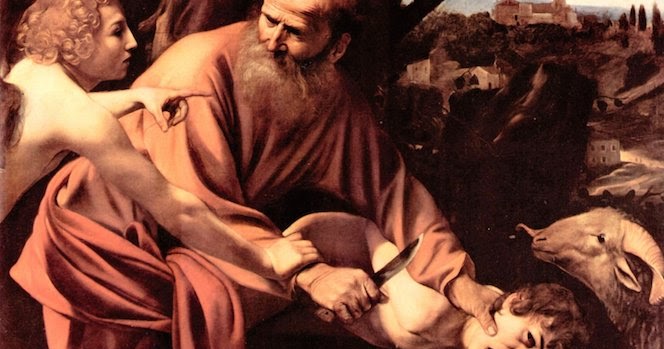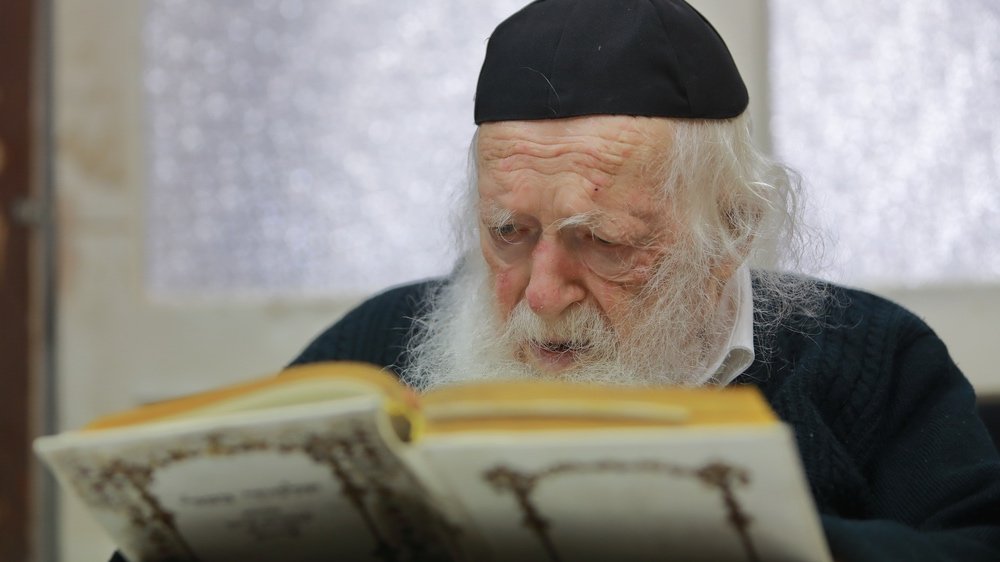when i was young i blamed all the world's ill's on organized religion. to me it was a unique evil. however, after gaining in wisdom, reading much of world literature, religious texts, historical documentation, etc. i see that the problems of humanity have ALWAYS been with us.* that these problems appear in all hierarchies, that they are sort of a natural result of concentrated power, of political extremism, of indulging in personal sin, of core,
The sin nature is indeed a big contributor the problems of our world. However "Religion" plays a equally large part in mankind's predicament. I would define "Religion" as a system that chose a path away/separate from the Creator. Satan as well as the rest of the entities that rebelled against God and His natural order are responsible for the existence of all other systems that drive humankind to choose a path separate from the Creator. (Genesis 10 - The Table of Nations / Deuteronomy 32:8 )
fundamental human failings. we are all sinful beings, we constantly fail to live up to the Christly example demonstrated in God's earthly incarnation. but this has always been a core part of Christianity, realization of our shortcomings, the hope of overcoming those through Christlike mindfulness. i often see heathens accuse Christians of failing to hold people to their own standards, excusing un-Christ-like behavior in public figures.
What defines the Christian is a "set apart" lifestyle. We are to be set apart and seperate ourselves from the carnal world. That is a all encompassing application to everything we are and do. Sadly many people who identify as Christian do not apply the instructions on how to live their lives according the what the Bible teaches us.
yet Christ teaches to "Judge Not" for there is only one True Judge. at the risk of falslely portraying Christ as some kind of pacifist hippy I feel the forgiveful nature is one that i feel must be prioritized. thus to condemn people for their (possibly slanderous and even untrue) sins and do so in a public and outward fashion seems a very unholy way to go about things.
"Judge not lest ye be Judged" is thrown around alot, but how many people actually read the full passage of Matthew 7? Jesus is speaking of hypocrites and the wickedness of men judging others by their own merit. However in John 7 we are told to "Judge Righteous Judgement". While Jesus is the perfect example and the Arbiter of Justice who has the final authority on rendering judgement to a individual. As a Christian we are not only permitted, but expected to call out sin and wickedness where ever it may dwell. We are to be a light unto the world and expose evil with the light of Jesus Christ. We take what we have in the Bible and use that as our standard and not our own merits. Just as the Prophets of the Old Testament were intended to call out the sins of Israel to turn back to YHVH. So are we to call out these sins of men, not to condemn them, but to beckon them back to God that they may repent and return to their Creator.
*the more i think about Genesis the more it feels like an argument for Free Will. ive made peace with the somewhat seemingly contradictory idea that God is all-knowing and yet allows humans free will, but i feel like this story is given such prominence in order to convey that Truth. Adam and Eve as eternal beings, without sin (?), and without the pains of birth and death, who chose to leave the static eternal life in Paradise and were cast into worldly sin, where we still reside. they lived idyllic lives in the Garden, free as children - free of the burden of responsibility for one's actions. then given a simple rule, they chose to break it, proving Free Will exists, demonstrating Basic Morality, and how consequences befall amoral behavior. after the fall - the realization of self responsibility - worldly toil was necessary, and so satisfying worldly needs took priority, placing us squarely in the realm of sin. despite our enlightened human souls we had acted like hungry animals and thus were cast out to compete with the animals for food and shelter.
God being all-knowing is true. But foreknowledge does not mean predestination. Is it possible for mankind to make a choice that God Himself would not be pleased with? Yes. However for mankind to be Imagers of God, we must exhibit abilities that define God. One of those abilities being Free Will. Adam and Eve were lied to by the Serpent in the Garden of Eden. To distill beginning of Genesis down into some simplistic existentialism metaphor undermines the scripture that tells us about what happened in the Garden of Eden, What it means of Jesus as the Second Adam, and the character of the God of the Bible.
forgiveness seems to be a necessary part of God's judgement, without which the world would probably not exist. mercy to balance wrath. feel like a lot of public judgement going on these days is all wrath and no mercy.
The Bible tells us specifically that those who seek out God earnestly, repent of their sins, and ask for forgiveness that God is righteous and just to forgive our transgressions. Everyone likes to talk about John 3:16, but look at what is said immediately afterwards.
John 3:
19
And this is the condemnation, that light is come into the world, and men loved darkness rather than light, because their deeds were evil.
20
For every one that doeth evil hateth the light, neither cometh to the light, lest his deeds should be reproved.
Men condemn and damn themselves. There is no forgiveness to those who do not follow the specific plan of salvation God has offered. God offers grace and mercy to those who are not worthy. Yet there is a threshold that once reached God must judge a individual, community, nation, even the entire world once that threshold is reached.
It is a constant struggle for me. I see evil people doing evil things and my first thoughts are retribution.
Yet we are commanded to forgive and love our neighbors. We must be wise. Yes, we pray for evil people to repent and give themselves to our Lord but at the same time evil must be labeled evil, called out, confronted, and destroyed.
I am able to forgive an evil person if they are truly repentant, but until that happens, I will continue to call a spade a spade. I am a sinner like all the rest, and I don’t want this to turn political. Let’s continue to be strong, vigilant, and to pray for our enemies, for we have many.
Jonah was commanded to warn Nineveh of God's impending judgement. Jonah was stubborn and resisted God's instruction. However once Jonah spoke to the people of Nineveh, they repented and God stilled His Hand. However the wickedness of Sodom and Gomorrah was so severe God informed Abraham of the impending judgement. Even though Abraham shows us the extreme mercy of God, yet there were not even a mere 5 righteous people among Sodom and Gomorrah. And so those people were rescued and those two cities were utterly destroyed.
The severity of sin reflects the severity of punishment. We forgive what we can, but sometimes a person must suffer the consequences of their actions.
We have to to escape the viscous circle of "eye for an eye". If we were to focus solely on retribution the world would be in a never ending spiral of destruction. Christ's message is trying to break the circle by telling us that WE have to take the beating from time to time to heal the world.
There is no need of retribution in a society where men and women live out a righteous life. If men and women adhered to the instructions in the Bible we would not need to seek vengeance on those who wrong us. However this is not the case.
When godless institutions like the Chinese Communist Party completely smash to splinters what Christian churches are left in China, or when Muslim Fulani Herdsmen in Nigeria decided to trap Christians inside a Church and burn them alive. My yearning the return of my Master will grow even stronger. I will eagerly await the day of their judgement.
The Books of Hebrews tells is that "For our God is a consuming fire". So when you read this next passage it all makes sense.
Zechariah 14:12 And this shall be the plague wherewith the LORD will smite all the people that have fought against Jerusalem; Their flesh shall consume away while they stand upon their feet, and their eyes shall consume away in their holes, and their tongue shall consume away in their mouth.
A merciless fate await those who persecute the people of God.




